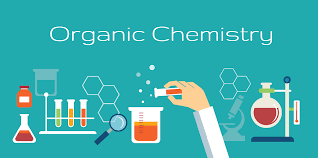1.
The number of C-H bonds in acetylene is
2.
The gas which decolourises bromine water is
3.
Saturated hydrocarbons are called
4.
Read the question given below
5.
A hydrocarbon with molecular mass 72 u is,
6.
The gas which decolourises bromine water is
7.
If the molecular formula of an organic compound is C8H16, it is
8.
Four students added a small amount of ethanoic acid to sodium bicarbonate. The gas evolved was tested for its behaviour with burning splinter and lime water
9.
Read the question given below
10.
In alkenes, the two carbons are joined by a/an
11.
The gas obtained when sodium acetate is heated with sodalime is
12.
A student takes sodium hydrogen carbonate powder in a test tube and pours 4-5 drops of acetic acid over it. He observes:
13.
Alkanes may be represented by the general formula
14.
Alkanes may be represented by the general formula
15.
Which of the following is a linear molecule?
16.
When propane-1-ol is oxidised, the following product is formed:
17.
Which of the following is a linear molecule?
18.
The gas obtained when sodium propanoate is heated with sodalime is
19.
Saturated hydrocarbons are called
20.
The organic compounds containing – OH group are called
21.
Read the question given below
22.
The gas which decolourises bromine water is
23.
A hydrocarbon with molecular mass 72 u is,
24.
The compounds of carbon and hydrogen are called
25.
The next higher homologue of propane is
26.
The compounds whose names end with yne, have between any two carbon atoms
27.
Carboxylic acids are obtained from alcohols by
29.
In an experiment to study the properties of ethanoic acid, a student takes about 3 mL of ethanoic acid in a dry test tube. He adds an equal amount of distilled water to it and shakes the test tube well. After some time he is likely to observe that;
30.
Which of the following is a linear molecule?
31.
Select the correct observation about dilute solution of acetic acid.
32.
A student takes about 2 ml. ethanoic acid in a dry test tube and adds a pinch of sodium hydrogen carbonate to it. He reports the following observations: (I) Immediately a colourless and odourless gas evolves with a brisk effervescence (II) The gas burns lime water milky when passed through it (III) The gas burns with an explosion when a burning splinter is brought near it (IV) The gas extinguishes the burning splinter that is brought near it The correct observations are:
33.
Methane gas is also known as
34.
Vapours of acetic acid smell:
35.
The compounds of carbon and hydrogen are called
36.
The gas obtained when sodium acetate is heated with sodalime is
37.
The compounds whose names end with yne, have between any two carbon atoms
38.
Alkynes may be represented by the general formula
39.
The acid which can produce carbon from the cane sugar
40.
Read the question given below


